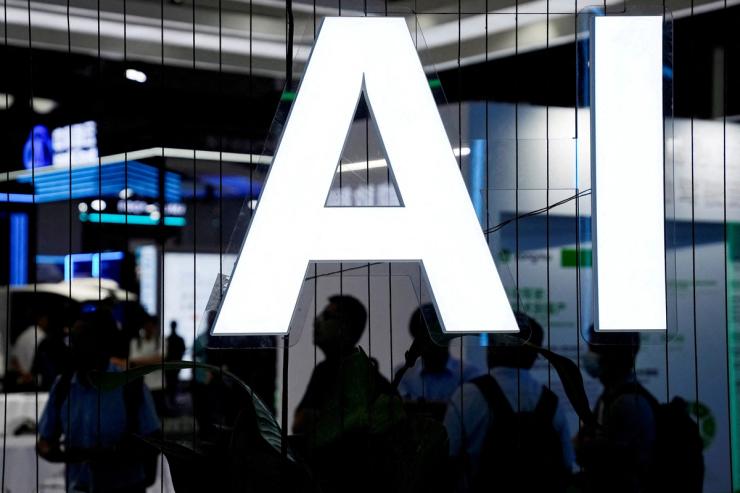
Semafor Signals
China is falling behind US in AI race, Chinese premier warned
Insights from the South China Morning Post, The Atlantic, and The Guardian

The News
China is falling behind the United States on artificial intelligence because of the country’s heavy reliance on American technology to train its AI models, researchers in the country have warned Chinese Premier Li Qiang.
Researchers at the Beijing Academy of Artificial Intelligence told the Chinese premier that China faces “a serious lack of self-sufficiency” in building its own generative AI, the South China Morning Post reported.
Domestic AI firms are said to rely excessively on Meta’s Llama system: an open source family of large language models (LLMs) that developers used to train AI services such as ChatGPT and its competitors.
Meanwhile, United States export restrictions on semiconductor technology to China mean that firms have struggled to create chips powerful enough to support domestic LLMs that have the same training capabilities as Llama.
China is racing to compete with Silicon Valley for AI dominance internationally, while the government has underscored the importance of being self-reliant in science and technology — but tech leaders fear a widening gap with the United States.
SIGNALS
Beijing has moved to loosen AI regulations to boost development
China was the first country to introduce regulations on generative AI — with guidelines ranging from ensuring privacy to developer responsibilities — as Beijing sought to retain extensive oversight over the emerging technology. But Chinese leaders are now realizing that these regulations are likely hindering development. During a recent visit to a technological production zone in Beijing, Li told developers the government was working to “open up more [AI application opportunities], increase policy support, and create a more relaxed environment for the development of the AI industry,” according to the Geotechnopolitics Substack.
Matt Sheehan, a Chinese tech researcher at the Carnegie Endowment for Peace, wrote on X that Li’s comments reflected a shift in emphasis on AI policy “from absolute control toward development” brought about by the country’s macroeconomic downturn and a fear of falling behind the U.S.
China’s heavy censorship is a stumbling block for homegrown AI
Analysts have warned that Chinese AI will fall behind Silicon Valley’s because of Beijing’s extensive censorship rules. “A chatbot model trained only on vetted information encircled by China’s Great Firewall is unlikely to be as effective as a foreign competitor that draws on a wider and more diverse corpus of sources,” Beijing-based journalist Michael Schuman wrote for The Atlantic last year. Chinese researchers are well aware of the limitations they face. During the presentation in Beijing, Li was told that a unique challenge faced by Chinese LLMs is “quality content that is in line with facts”, the South China Morning Post reported — a euphemism for ensuring that training models stick closely to Chinese Communist Party-sanctioned information and ideology. AI developers are also working to circumvent “hallucinations” — false content generated by AI — to avoid the inaccurate output sometimes given by bots including ChatGPT and Google’s Gemini, the SCMP reported.
Deepfake influencers show China’s AI sector has different strengths
Chinese AI may lag behind that of the U.S., but it is still highly advanced and a significant backbone of the Chinese economy, particularly in the live streaming and e-commerce sectors, Sinologist Manya Koetse wrote for The Guardian. China and the U.S. are “each engaged in their own race on different tracks” when it comes to AI implementation, Koetse argued, and it is inaccurate to say that “China’s AI revolution is losing momentum.” For example, while Chinese chatbots are not as robust as American models, the country has a thriving sector of deepfake influencers whom business users can use to sell their products, she wrote. Search giant Baidu recently announced that it hopes to boost rural economic development by using these virtual livestreamers to sell the products of 100,000 Chinese farmers internationally.

